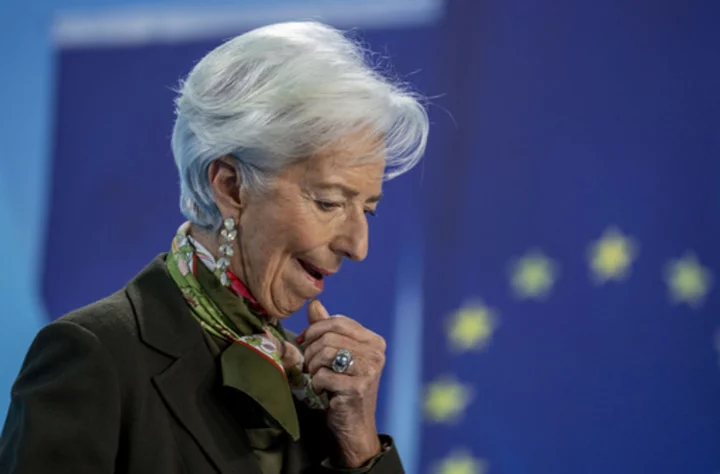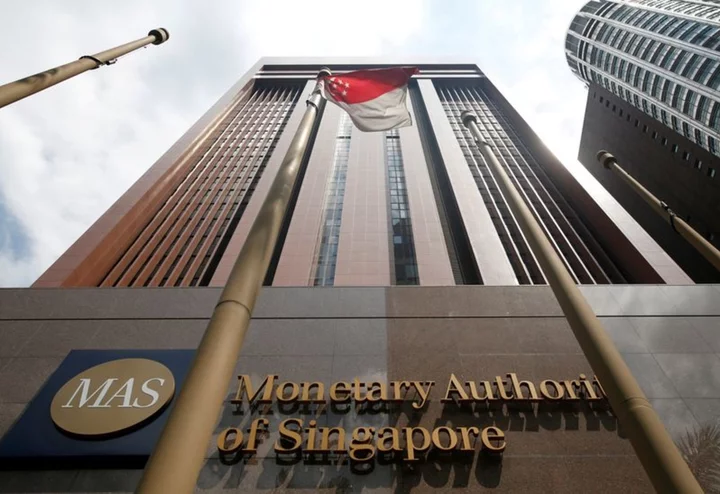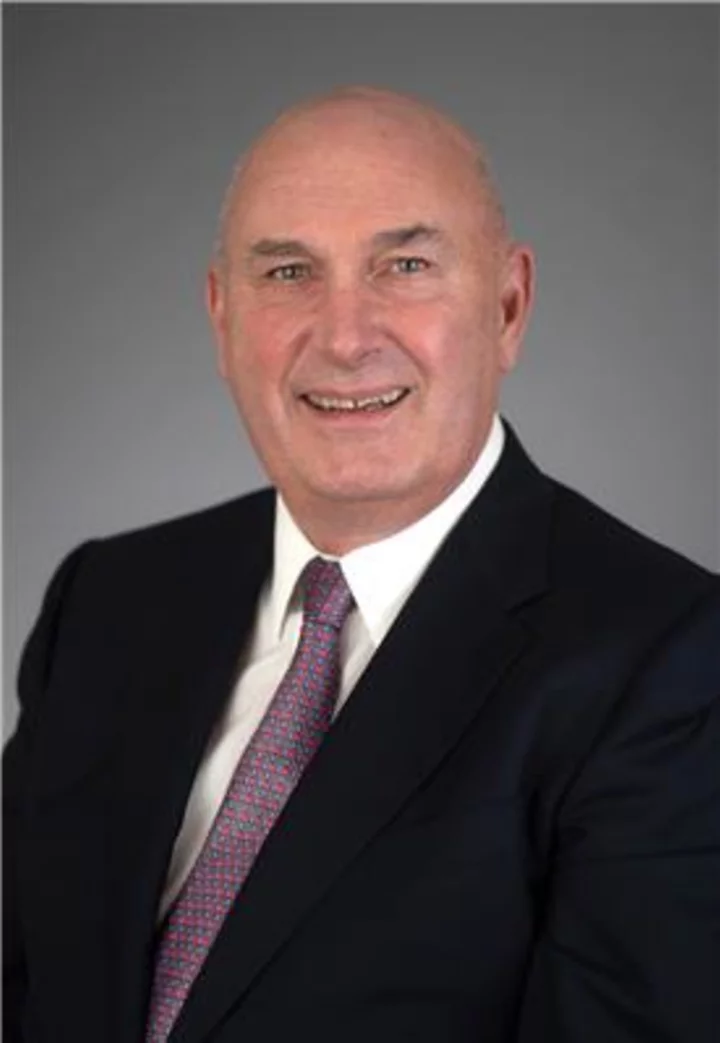FRANKFURT, Germany (AP) — Leading global central bankers asserted Wednesday that they are not backing off their steep interest rate increases, pointing to inflation being more persistent than expected but still downplaying fears of recession from their hikes.
The clear message was that rates would stay high until the inflation beast is subdued, according to a panel discussion with U.S. Federal Reserve Chair Jerome Powell, European Central Bank President Christine Lagarde, Bank of England Gov. Andrew Bailey and Bank of Japan Gov. Kazuo Ueda.
“I think we have to be as persistent as inflation is persistent,” Lagarde said during the talk at the ECB’s annual policy conference in Sintra, Portugal. “We have to be resolute and decided and determined in reaching the target that we have set and not debate the target as we are running that race.”
Despite rapid rate increases of 5 percentage points, Powell said rates “haven't been restrictive very long” and that "the bottom line is that policy hasn’t been restrictive enough for long enough.”
He and Lagarde both said there was more work to do.
Powell, Lagarde and Bailey stressed the strong jobs market as a driver of inflation, which has shifted from energy and goods to the service sector. Powell noted that there are 1.7 job openings for every unemployed person in the U.S., while Bailey described the U.K. jobs market as “very, very robust.”
Ueda, who took over the job this year, was the outlier, explaining that the numbers did not call for rate rises at this point.
The comments from some of the world's top central bank leaders underscored that inflation is turning out to be more widespread than originally hoped — and that borrowing costs might go higher, and stay high for longer, than many had anticipated.
Higher rates for a longer amount of time could hold back economic growth as borrowing becomes less affordable for everything from auto loans to credit cards, raising the risk of recession. Growth has been weak globally, and Europe’s economy already shrank for two straight quarters — one definition of recession.
But with unemployment at lows in Europe and other major economies, that gives little indication of a true recession. The Western central bankers said their economies have been more resilient than expected and they don't foresee a contraction.
Lagarde said the slip was more like stagnation, adding that the ECB's “baseline does not include a recession, but it’s part of the risk out there.”
Since early 2021, almost 95% of the world’s central banks have raised rates, even more than during the inflationary oil price shocks of the 1970s, according to the Bank for International Settlements, Switzerland-based global organization of central banks.
The BIS called it “the most synchronised and intense monetary policy tightening in decades.”
The Federal Reserve paused rate rises at its meeting this month, but Powell has reiterated expectations of further hikes this year. The Bank of England surprised with a large half-point hike last week, while the ECB raised rates for the eighth straight time this month. Central banks in Australia and Canada had paused rate hikes, only to resume them because inflation is stubbornly high.
The factors that triggered the initial outburst of inflation have faded: high energy prices stemming from Russia's invasion of Ukraine, and supply chain bottlenecks as the economy rebounded from the COVID-19 pandemic.
But higher prices have since spread to the service industry and to bargaining efforts by workers from nurses to rail drivers who are seeking salaries that keep pace with the rising cost of living.
As workers press for higher pay, that can keep pushing up prices along with it in a wage-price spiral — a central banker's worst nightmare.
Higher rates also carry the risk of turmoil among banks lulled by years of low rates, underlined by the collapse of Silicon Valley Bank and other midsized banks after they failed to insure investments against rate hikes.
Rising mortgage rates can discourage demand for houses and lead to falling home prices that weigh on consumer wealth and confidence. And people with adjustable-rate mortgages common in some countries can face unanticipated financial pressure. The U.K. Financial Conduct Authority warned earlier this year that about 9% of mortgages in Britain are at risk of defaulting in 2023-24.
Yet the pain would only grow worse if inflation slips out of control, the Bank for International Settlements argued in its annual report Sunday.
“On balance, the biggest risk is to declare victory too soon ... the trade-offs involved in restoring price stability worsen once inflation becomes entrenched,” it said. “The costs of a high-inflation regime are simply too high to take any chances.”
___
Rugaber reported from Washington.









